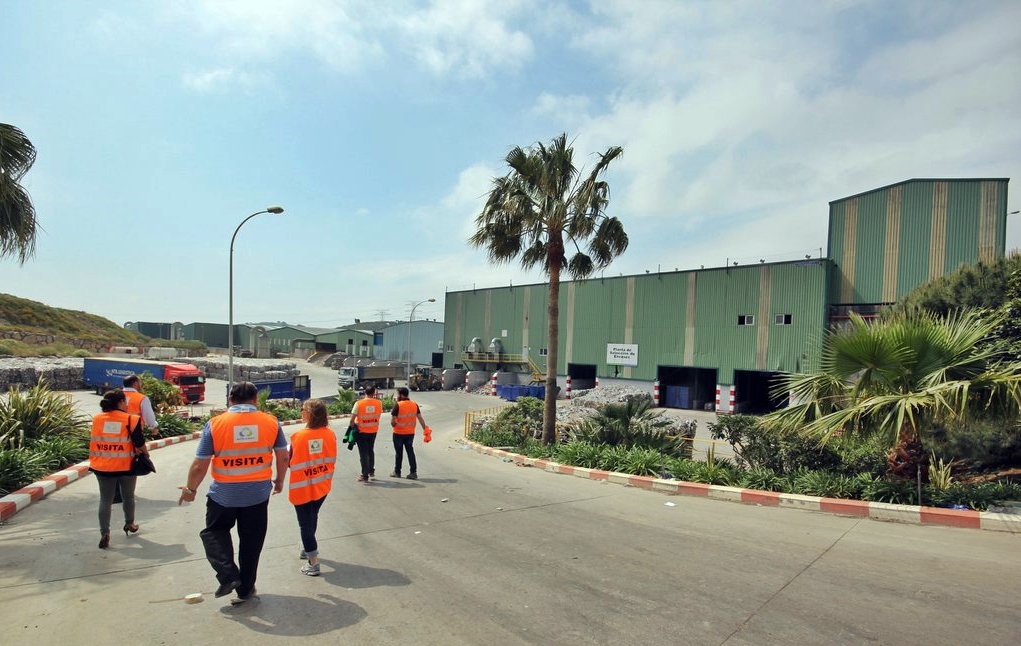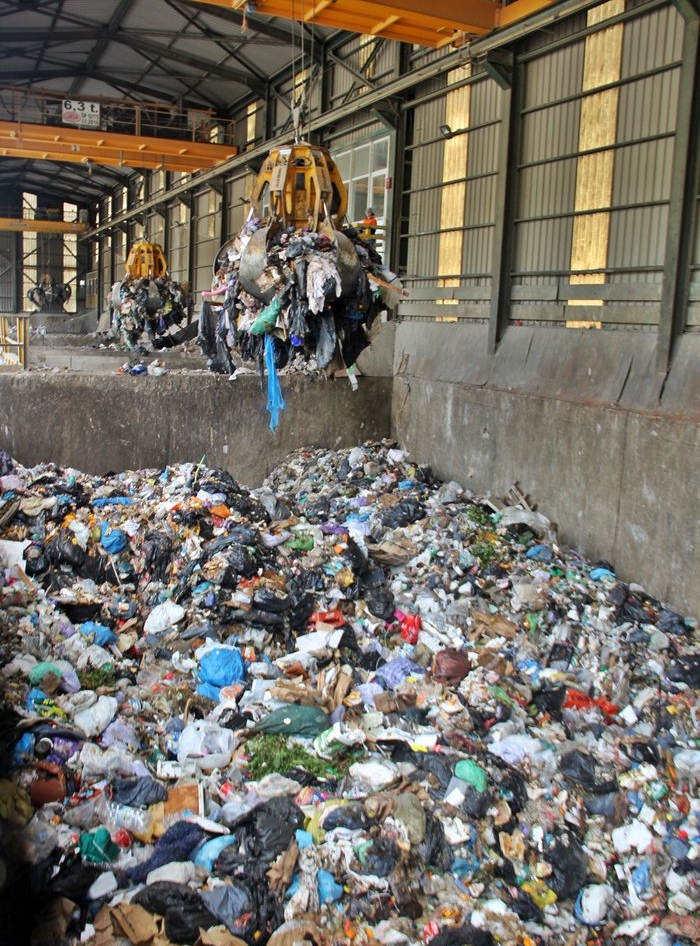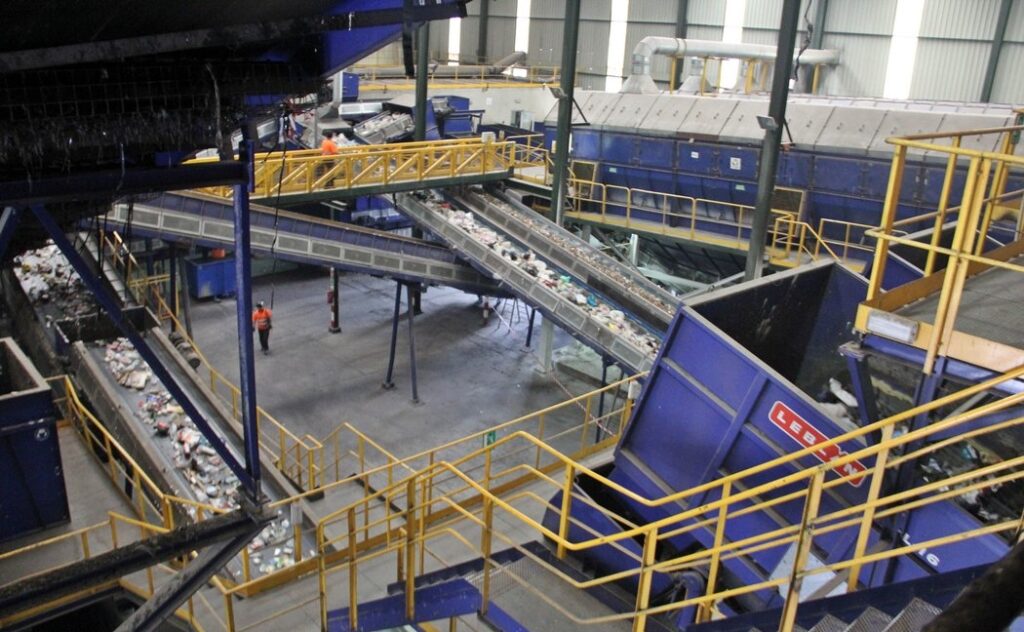
With the topic of recycling very much at the forefront of public consciousness at the moment, with the UN Climate Conference COP 26, currently being held in Glasgow, I recalled a trip to the Urbaser waste recycling and processing plant in Casares, organised by Manilva’s Environment Department, in collaboration with the local company Eco Passion.
Not that I would normally get excited by a day trip to the tip, but Urbaser’s facility is an impressive example of the way forward in the disposal of household rubbish.
Urbaser are responsible for collecting the household refuse from the eleven municipalities that form the Mancomunidad de Municipalities de Costa del Sol Occidental, a collective of municipalities from the western Costa del Sol, which pools its resources for activities such as water supply, refuse collection, etc.
This covers a population of over half a million residents, which rises dramatically during the summer months due to tourism, generating some 350,000 tons of rubbish.
After a meeting with Juan Carrasco, Plant Manager and Ignacio Fernandez, Urbaser’s head of recovery of recyclables, we headed off on a tour of the facility.
One of the key responsibilities taken on by Urbaser is the education of the public, and whilst we were there a party of schoolchildren were enjoying a video on the subject. From the information centre we passed the vehicle weighbridge where the refuse lorries are weighed in and out allowing the managers to keep a track of the refuse tonnage from each municipality.

The first area we visited was the waste reception area, where the refuse lorries unload into big pits from where operators employ large grabs, a little like those machines at the amusement arcade but on a much grander scale, to load the rubbish onto conveyors which then enter the plant.
There is a separate pit where all the plastic from the yellow recycling containers is deposited.
Inside the plant we were met by a bewildering network of conveyor belts feeding a wide variety of machines that shake, tumble, sift and sort the rubbish, before it carries on to the next stage.
It’s at this point that we discovered that all refuse is processed and sorted, passing through machine, weight and optical sorting to recover metals and plastics that didn’t make it to the recycling bins, with the final processing handled by humans. In fact Urbaser recovers 90% of plastics from general refuse.
In this way 80% of household refuse is recycled with the remaining 20% compressed into metre and half bales which are stacked three high and covered with soil.
Whilst it is great that these plastic and tin items can be recovered from the general refuse, the town hall has to pay per ton for it to be collected so it makes good sense to sort your refuse before dumping it.
Spain has a recycling policy through the not-for-profit organisation Ecoembes. Ecoembes partners with companies such as Urbaser and levies a small charge on all plastic items which bears its mark. This funds the collection of plastics, drinks cartons and cans, without any charge to local town councils. The plastics are collected, sorted and sent to recycling companies which repurpose it into new items, for example 40 PET plastic water bottles can be converted into a fleece, 80 tin cans go to make a bicycle rim, and just 6 tetrabriks go to make a shoebox.
Although not all plastics are the same material Urbased advises the public to put ALL plastics in the yellow container, don’t worry that you think it may not be recyclable, Urbaser will do the sorting at their plant.
Similarly, glass is recovered through a company called Ecovidrio, again the collection of glass is free of charge to local councils, and given its weight it makes even more sense to place it in the green containers allocated and not into general rubbish which costs the council.
One of the things that struck me was the lack of smell, I had steeled myself before entering the plant, fully expecting to be struck by a wall of odour, but surprisingly there was just a faint whiff which was not uncomfortable.

Most of the organic waste is shredded and composted in huge sheds (you remember I mentioned there was little smell, well I take that back – phew!), and up until a few years ago, some 2% of this compost consisted of small pieces of broken glass, but Urbaser took a gamble on the purchase of equipment which can remove the glass from the compost, a gamble which has paid off in the years since it was installed.
Urbaser does not process clothing. Clothing can be donated to local charities such as the Duquesa Charitable Society of St George, who can sell it in their shops, on the market, or can pass it to a recycling company which pays a small sum per kilo.
Recycling has improved in recent years, but always takes a dip in the summer when the local population increases through tourism. It is an unfortunate fact that the visitors don’t tend to recycle their rubbish, even though they might do so back at home. Urbaser and the local authorities are working on schemes to encourage and to make it easier for visitors to recycle.
Importantly given the current issues in the UK recycling industry, virtually all the recyclables are processed in Spain, and not shipped off around the world to sit in a field in Poland or rot on a dockside in Hong Kong.








